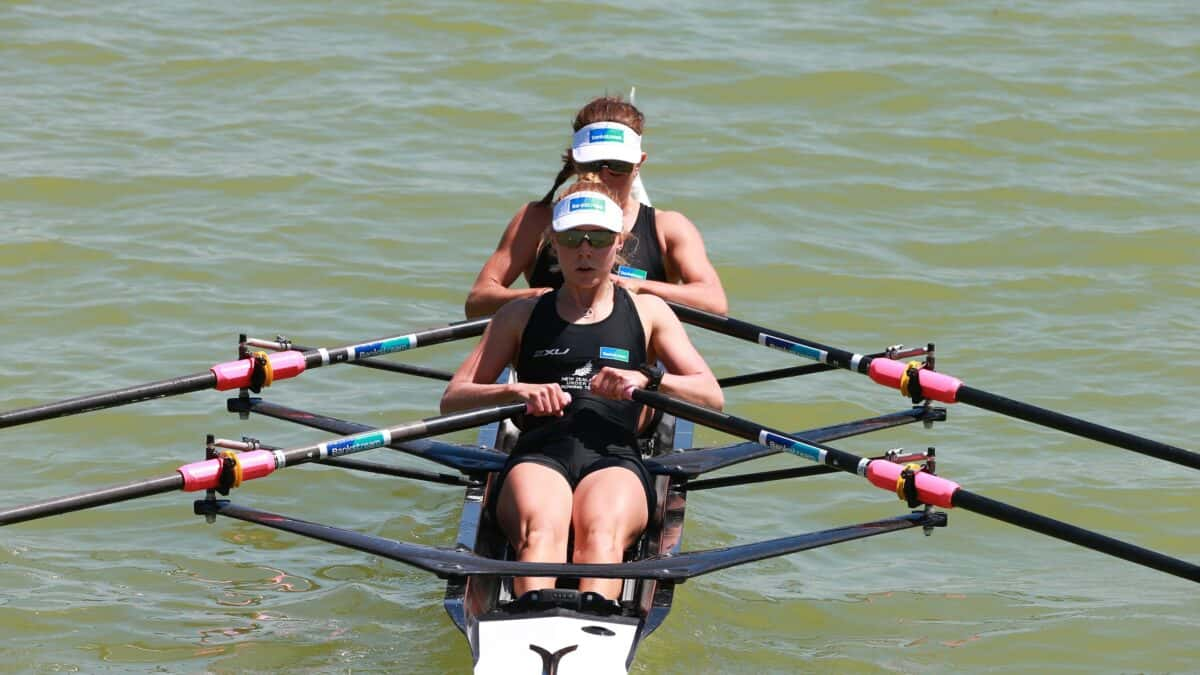
24 Jul 2015
Training with the best lightweight women in the world
Burcicia’s World Best Time remained unbroken for 21 years. In 2015 a 19-year-old New Zealander, Zoe McBride finally broke Burcicia’s time of 7:28 by a full four seconds. McBride achieved this at the World Rowing Cup in Varese, Italy earlier this season.
Like Burcicia, McBride started rowing as a 14-year-old. Like Burcicia, she soon became part of her country’s national team. They both competed as juniors and while McBride took bronze at her first international regatta, Burcicia was a gold medallist. This is where the similarities may end.
McBride is part of the New Zealand elite rowing squad that currently has four of the best lightweight women scullers in the world in the team. This includes the reigning World Champions (and World Best Time holders) in the lightweight women’s double sculls, Sophie MacKenzie and Julia Edward and McBride’s under-23 lightweight doubles partner, Jackie Kiddle.
“It’s really awesome for me and Jackie because we are younger and we are coming up through the system,” says McBride.”It’s great to train with the best lightweight scullers in the world. Definitely over the summer we learned a lot about rowing, sculling and what is expected of you at the elite level. It is cool to be able to train alongside them every day because they have so much experience and information that we can learn from.”
McBride is the reigning Under-23 Champion in the lightweight double after winning last year with then partner, MacKenzie. This year McBride will aim to defend her title with Kiddle. In their heat yesterday they finished first moving them on to semifinals on Saturday.
[PHOTO src=”120250″ size=”mediumLandscape” align=”right”]
Kiddle, 21, like McBride, raced in the single earlier this season at two World Rowing Cups. With McBride finishing first both times, Kiddle proved that she had boat-moving speed by finishing not far back in fourth both times.
“We have done some training together in the double,” says Kiddle. “It’s quite nice to have training in the single and in the double because it breaks it up a little bit and gives us some variety in our training. We clicked as soon as we got into our combination (in the double) so it hasn’t been too hard to make the transition. For me personally, I am lot more comfortable in the double than in the single.”
After the World Rowing Under 23 Championships, McBride will remain in Europe to prepare for racing in the lightweight women’s single sculls at the World Rowing Championships in Aiguebelette. Kiddle will head back to New Zealand to prepare for a university race, the Great Race, before starting her preparation for the 2016 season.
And next season both McBride and Kiddle will be looking to move into the Olympic boat, the lightweight women’s double sculls.
“There are effectively four really fast scullers going for two spots,” says Kiddle. “For us being the younger ones, we’ve got to remind the older ones (Edward and MacKenzie) that we are trying for their spot and they have to work hard to hold it. They know that we’re there. They know that we are going to work hard and that we want it. But it’s going to be tight competition, anything could happen. It could be any combination.”
Whatever the combination, this group of four scullers is likely to tie up the medals in a number of boat classes.

